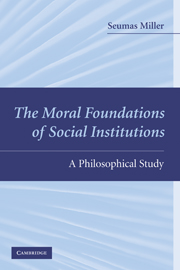8 - The University
Published online by Cambridge University Press: 05 June 2012
Summary
In this chapter I apply my individualist, teleological (normative) account to the university as an institution, and in this context explore the normative notion of academic autonomy and its relation to freedom of intellectual inquiry. In doing so I identify certain bureaucratic and market-based influences that tend to have a corrosive – if not a corruptive (Chapter 5) – effect on the institutional processes, roles, and ends of the university. I begin with a brief introduction to the contemporary university.
THE HYBRIDIZATION AND TRANSMOGRIFICATION OF THE UNIVERSITY
Academic autonomy is a so-called traditional academic value. Other such values include institutional autonomy, collegial conceptions of governance, academic freedom, tenure, and ownership of intellectual property, and the centrality of academics and of academic matters in the life of the university.
These values are part and parcel of a particular (normative) individualist, teleological model – call it the traditional model – of the university and the constitutive institutional role of the academic. Roughly speaking, on this model universities have as a collective end (Chapter 1) the acquisition, transmission, and dissemination of knowledge, both for its own sake as well as for the multifarious benefits that such knowledge brings to the wider community; in short, universities produce a collective good (Chapter 2). It is important to stress that knowledge in this context must be broadly conceived so to embrace not only information, but also understanding and the skills to acquire information and understanding, including the skills needed by the professions (Chapter 6).
- Type
- Chapter
- Information
- The Moral Foundations of Social InstitutionsA Philosophical Study, pp. 225 - 244Publisher: Cambridge University PressPrint publication year: 2009



